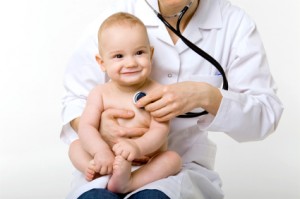 It’s no surprise that the parents of chronically ill children face more stress than other parents. But now a systematic review lays out the evidence on exactly what causes this stress, and what health care providers should do to help. [Read more…]
It’s no surprise that the parents of chronically ill children face more stress than other parents. But now a systematic review lays out the evidence on exactly what causes this stress, and what health care providers should do to help. [Read more…]
New evidence on the stress of parenting sick children
Midwives: Good for moms and babies
The evidence on babies, sleep and crying
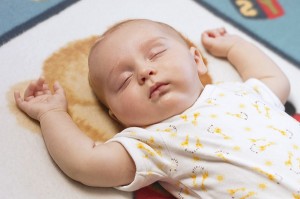 I’ve still got babies on the brain as I refresh my memory on how to care for a newborn. By the time they were two months old, my two older children were learning to sleep in their cribs. That meant letting them cry and learn to settle themselves when I knew all of their needs were met. So I was curious to read some recent media reports about the evidence on “crying-it-out.”
I’ve still got babies on the brain as I refresh my memory on how to care for a newborn. By the time they were two months old, my two older children were learning to sleep in their cribs. That meant letting them cry and learn to settle themselves when I knew all of their needs were met. So I was curious to read some recent media reports about the evidence on “crying-it-out.”
Skin-to-skin is best for newborns
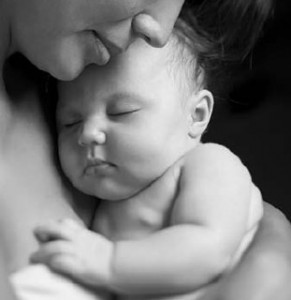 With only about 9 weeks until our third child is due, I’m starting to think once again about everything that comes along with a new baby. At a recent birth preparation class, the instructor encouraged us to look up the evidence about holding your baby skin-to-skin immediately after he or she is born.
With only about 9 weeks until our third child is due, I’m starting to think once again about everything that comes along with a new baby. At a recent birth preparation class, the instructor encouraged us to look up the evidence about holding your baby skin-to-skin immediately after he or she is born.
How to identify emotional abuse and neglect in preschoolers
 The evidence is clear that developing skills early-on – especially before children enter kindergarten – is essential for success later in life. Unfortunately, children face consequences throughout their lives when they do not get the support they need as babies and preschoolers. Physical and behavioral problems and delays in social and communication skills are just some of the poor outcomes. [Read more…]
The evidence is clear that developing skills early-on – especially before children enter kindergarten – is essential for success later in life. Unfortunately, children face consequences throughout their lives when they do not get the support they need as babies and preschoolers. Physical and behavioral problems and delays in social and communication skills are just some of the poor outcomes. [Read more…]
New conclusions about bed rest during pregnancy
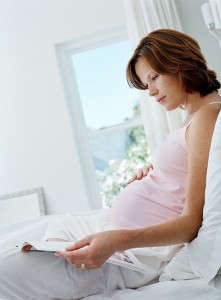 So far, my third pregnancy is going well. I’m able to maintain almost all of my normal activities including work, swimming and taking care of my two children. But, I have to admit, one of my fears is that I will suffer a complication that requires bed rest. I can’t imagine taking care of my 4-year-old and 2-year-old from the couch or bed. [Read more…]
So far, my third pregnancy is going well. I’m able to maintain almost all of my normal activities including work, swimming and taking care of my two children. But, I have to admit, one of my fears is that I will suffer a complication that requires bed rest. I can’t imagine taking care of my 4-year-old and 2-year-old from the couch or bed. [Read more…]
Evaluating programs to promote teen sexual health
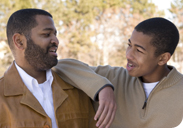 Teenagers and young adults represent only 25 percent of the sexually active population in the U.S., but they acquire nearly half of all new sexually transmitted infections, according to the U.S. Centers for Disease Control. [Read more…]
Teenagers and young adults represent only 25 percent of the sexually active population in the U.S., but they acquire nearly half of all new sexually transmitted infections, according to the U.S. Centers for Disease Control. [Read more…]
The serious effects of physical discipline
There are many factors that influence how parents discipline their children: parents’ own upbringing, family customs and stress levels all factor in. But there is clear evidence that some forms of discipline – specifically physical punishment – have negative effects on children throughout their lives.
A new systematic review reveals a body of evidence demonstrating physical punishment may increase the chances of antisocial behavior and aggression, depression, anxiety, drug abuse and psychological problems later in life.
The review is especially interesting because it discusses intervention programs designed to reduce physical punishment and child abuse. It included a trial of one intervention that taught parents to reduce their use of physical punishment, which led to less difficult behavior by their children.
Another such program – called Triple P – originated in Australia was tested in a study funded by the U.S. Centers for Disease Control. The program uses a broad range of strategies to address physical abuse including consultations with parents, public seminars and public service announcements on local media. It led to significantly positive results that are encouraging if replicated in other areas of the U.S. Counties that implemented the program had lower rates of substantiated child abuse cases, fewer instances of children removed from their homes and reductions in hospitalizations and emergency room visits for child injuries.
John Eckenrode, professor of human development and director of Cornell’s Bronfenbrenner Center for Translational Research, is an expert in child abuse and maltreatment. He’s written a chapter about preventing child abuse in the book Violence against women and children, published by the American Psychological Association.
“We know that there are tested and effective ways to support parents so that they can better provide a safe and supportive environment for their children without resorting to physical punishment,” he said. “But we must get the word out, provide those who interact with parents such as teachers and physicians with the tools they need to promote positive parenting strategies, and provide resources to states and localities to scale-up effective programs.”
The take-home message: Physical punishment and child abuse are serious problems that have life-long effects. But there is a growing body of evidence that intervention programs can help guide parents to other methods of discipline.
The evidence shows preschool matters!
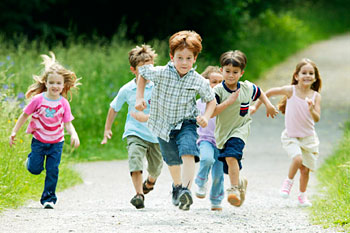 We have heard educators and politicians alike tout the virtues of early childhood education, and how it prepares kids for a lifetime of learning. With one of my own children in preschool and another one headed there shortly, I’m always interested in the evidence on this stage learning. Do activities like playing with blocks and paints, sitting through circle time and learning to share really impact a child for the rest of his life?
We have heard educators and politicians alike tout the virtues of early childhood education, and how it prepares kids for a lifetime of learning. With one of my own children in preschool and another one headed there shortly, I’m always interested in the evidence on this stage learning. Do activities like playing with blocks and paints, sitting through circle time and learning to share really impact a child for the rest of his life?
So I was fascinated to follow a series of reports on National Public Radio that detail some interesting evidence about preschool programs. While these reports didn’t include a systematic review, they did include several different longitudinal studies that make an interesting case about the importance of preschool.
On the show This American Life, host Ira Glass talks with a range of experts – a journalist, an Nobel-prize winning economist and a pediatrician – about the evidence on what researchers call “non-cognitive skills” like self-discipline, curiosity and paying attention.
One of the leading experts in this field is an economist at the University of Chicago named James Heckman. His work has found that these soft skills are essential in succeeding in school, securing a good job, and even building a successful marriage. Heckman found that children learn these skills in preschool.
One well-known longitudinal study followed a group of low-income 3- and 4-year-olds in Ypsilanti, MichiganThese children were randomly assigned to attend preschool five days a week, or not attend any preschool. After preschool, all of the children went to the Ypsilanti public school system.
The study found that children who attend preschool were more successful adults. They were half as likely to be arrested and earned 50 percent more in salary. Girls who attended preschool were 50 percent more likely to have a savings account and 20 percent more likely to have a car.
Another similar project conducted in North Carolina found that comparable results: Individuals who had attended preschool as children were four times more likely to have earned college degrees, less likely to use public assistance, and more likely to delay child-bearing.
There is more evidence too. NPR’s Planet Money aired a show earlier this year demonstrating further evidence about the benefits of preschool. And researchers at the University of Texas in Austin found that preschool reduces the inequalities in early academic achievement.
The take-home message seems to be: Preschool matters!
